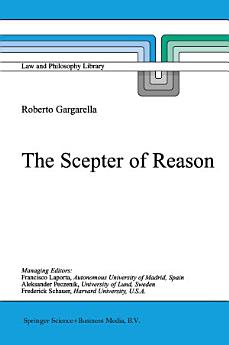The Scepter of Reason: Public Discussion and Political Radicalism in the Origins of Constitutionalism
Dec 2012 · Law and Philosophy Library Book 48 · Springer Science & Business Media
Ebook
143
Pages
reportRatings and reviews aren’t verified Learn More
About this ebook
It is not unusual that formal and informal discussions about the political system, its virtues, and its many defects, conclude in a discussion about impartiality. In fact, we all discuss impartiality when we talk about the best way to equally consider all viewpoints. We show our concerns with impartiality when, facing a particular problem, we try to figure out the best solution for all of us, given our conflicting interests. Thus, the quest for impartiality tends to be a common objective for most of us, although we normally disagree on its particular contents. Generally, these formal and informal discussions about impartiality conclude in a dispute between different "epistemic" conceptions. That is to say, simply, that in these situations we begin to disagree about best procedure to defme the more neutral, impartial solution for all of us.! Basically, trying to answer this question we tend to fluctuate between two opposite positions. According to some, the best way to know which is the more impartial solution is to resort to a process of collective reflection: in those situations we have to consider the opinions of all those who are possibly affected.
Rate this ebook
Tell us what you think.
Reading information
Smartphones and tablets
Install the Google Play Books app for Android and iPad/iPhone. It syncs automatically with your account and allows you to read online or offline wherever you are.
Laptops and computers
You can listen to audiobooks purchased on Google Play using your computer's web browser.
eReaders and other devices
To read on e-ink devices like Kobo eReaders, you'll need to download a file and transfer it to your device. Follow the detailed Help Center instructions to transfer the files to supported eReaders.









